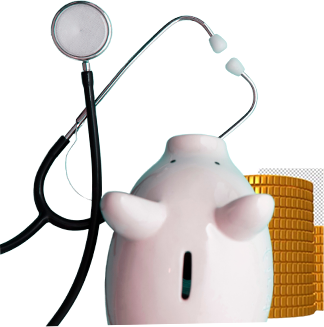PERSONALIZED DIET PLAN FROM
Best Dietician And Nutritionist for Menopause

Contact Us
Menopause is an important time in a woman’s life and body. It is associated with a range of physical and emotional changes. A dietitian or nutritionist to consult with is quite useful during this time. These specialists give personalized dietary information that is very effective in handling symptoms like hot flashes, weight gain, and mood swings. The health advisers’ main job is to give women advice on how to stay healthy. These include ways to keep their bones healthy, keep their cholesterol levels in check, and give them a good diet plan.
Dietitians and nutritionists can make specific meal plans with nutrient-dense foods that help people get enough vitamins and minerals, which is especially important for women going through menopause. They can also help you make changes to your habits that will help your sleep, energy, and mental health. Talking to a chef or dietitian about menopause can help women handle it better and live a healthier, more active life.

What Happens During Menopause?
The time when a woman stops having periods is called menopause. It usually happens between the ages of 40 and 50. It is diagnosed if you don’t have a menstrual period for 12 consecutive months. With menopause, the ovaries produce less and less estrogen and progesterone, resulting in numerous physical and emotional transformations. Typical symptoms are hot flashes, night sweats, mood swings, weight gain, and fractured sleep.
Women can also suffer from dry vaginas, decreased sexual desire, and changes in skin elasticity. There can be a decrease in bone density as well, raising the possibility of osteoporosis. Emotional symptoms may include anxiety, depression, and irritability.
Consultants will often advise women to make certain changes to their current eating or lifestyle habits. They are encouraged to maintain eating healthy, work out daily, and practice stress-relieving activities. In the cases where the women may be experiencing more severe symptoms, they will be put on hormone replacement therapy (HRT).
Key Nutritional Components for Menopausal Health
The following are some of the nutritional components that are recommended for women undergoing menopause:
Calcium and Vitamin D: These help maintain bone density and prevent osteoporosis. Your consultant will advise you to have about 1200 mg of calcium and 800-1000 IU of vitamin D on a daily basis.
Vitamin B12: Your cells and tissues need rejuvenation. This vitamin is essential for forming red blood cells and also for DNA synthesis, as well as supporting your neurological function. When seeking professional help, you may be prescribed supplements to prevent anemia and to improve your cognitive health.
Omega-3 Fatty Acids: This is a nutrition we can find in pretty much the food we consume day-to-day. It will be found in ingredients such as fish, flaxseeds, walnuts, and more. The nutritional component is best for your heart health and prevents any inflammation in the body.
Magnesium: This is a popular supplement that is trending for it’s plethora of health benefits. There are many foods you can eat to increase magnesium levels in your body naturally. Some of these ingredients include nuts, seeds, leafy greens, etc. This element will improve muscle and nerve function.
Phytoestrogens: If you are looking to increase the estrogen levels in your body naturally, then consider eating soy products, flaxseeds, and legumes. These ingredients contain a plant-based nutritional component that has the ability to mimic estrogen, which helps increase it in your body.

Why Work with a Dietitian or Nutritionist During Menopause?
A woman working with a dietitian or a nutritionist during menopause can also have some changes and challenges. Nutritionists can assist you in managing hormonal transformations by providing tailored diet recommendations to lessen a few of the most common symptoms like heat flashes, nighttime sweats, and temper swings. They can also help you preserve your bone health by ensuring you are getting enough calcium and vitamin D.
Dietitians and nutritionists can also help manage weight gain with a well-balanced dietary plan customized to your specific needs. While physical health is certainly important, a nutritionist for menopause can also aid general well-being by optimizing energy, sleep, and even emotional health. Working with a dietitian or nutritionist for menopause will empower you during this transition so you can go through menopause healthy and active.
Common Diet Plans for Menopause Management
Following are some diet plans that are commonly advised by nutritionists to women undergoing menopause:
Mediterranean diet: This diet is rich in fruits, vegetables, whole grains, and healthy fats. It is ideal for maintaining one’s heart health and for weight management.
Plant-Based Diet: The diet focuses on the consumption of whole, plant-based foods like fruits, vegetables, legumes, and whole grains. Perfect for balancing hormones and maintaining essential nutrition levels in the body.
Low-Carb Diet: In this diet plan, nutritionists advise you to reduce or cut carbohydrate intake. The focus is geared toward consuming proteins and healthy fats. This helps manage weight gain and stabilize blood sugar levels.
Anti-Inflammatory Diet: This diet focuses on the intake of leafy greens, nuts, seeds, and fatty fish. The goal of this diet is to reduce inflammation and joint pain.
Keto Diet: A high-fat, low-carbohydrate diet that can help with weight management and stabilize blood sugar levels.
Recommended Foods for Menopause Wellness:
Following is a brief overview of the foods that will help manage menopause symptoms:
- Calcium-Rich Foods: Dairy, plant-based milk, almonds.
- Vitamin D foods: Fatty fish (salmon, mackerel, etc.), egg yolks, cheese, cod liver oil, mushrooms.
- Phytoestrogen-Rich Foods: Soy products (tofu, soymilk, edamame, etc.), flaxseeds, legumes (chickpeas, lentils, beans, etc.), sesame seeds, whole grains (barley, oats, etc.), nuts (almonds, pistachios, walnuts, etc.), fruits, and vegetables.
- Fiber-Rich Foods: Whole grains, fruits, vegetables, and legumes.
- Healthy Fats: Avocados, nuts, seeds, and olive oil.
- Omega-3 Fatty Acids: Salmon, mackerel, chia seeds, and walnuts.
- Magnesium-rich foods: Dark chocolate, leafy greens, and nuts.
- Hydrating Foods: Cucumbers, watermelons, and oranges, etc.
- Antioxidant-Rich Foods: Berries, tomatoes, and bell peppers, etc.


Benefits of Working with a Dietitian or Nutritionist During Menopause
If you are a woman nearing menopause or have started noticing these symptoms, it is highly recommended that you work with a nutritionist. This is a crucial stage as the body undergoes so many changes. Having the added support of a dietitian during this time will benefit you in a lot of ways.
- Tailored food plans: One of the main advantages of a dietitian or nutritionist is that they can save you from the hassle of having to prepare a diet plan. They take into account your needs and symptoms and craft a diet plan accordingly. Everyone experiences unique symptoms or a unique experience when it comes to menopause. Recognizing the symptoms and creating a diet plan to address them specifically is important.
- Bone health: Osteoporosis is a major symptom of menopause. This is why many women are advised to consume calcium and vitamin D. A dietitian will help you manage this symptom early on via dietary intake or supplementation.
- Weight control: A lot of women notice weight gain as a symptom of menopause. It can be difficult to get rid of this accumulated weight if not managed timely. Your dietician or nutritionist will step in during this time to prepare a workout routine. Sticking to this regime will help you manage your weight and prevent any additional health-related issues.
- Heart health: Women during their menopause period are prone to or are at risk of cardiovascular diseases. This is why it is of utmost importance to take care of your body during this time. With the help of a nutritionist, you can stick to diets that will minimize or mitigate these risks.
- Overall Well-Being: It can be overwhelming to come up with an organized routine during menopause. The symptoms, the changes, and the rush of emotions may make you feel all over the place. This is where your nutritionist steps in by helping you create a routine you can stick to. This involves making lifestyle changes, to increase energy, improve sleep, and mental well-being.
Why Choose QUA Nutritionist for Menopause Management?
QUA Nutrition stands out as an excellent choice for managing the symptoms of menopause. We have a specialized and comprehensive approach to the treatment plan. Our team of dedicated dieticians and nutritionists for menopause has in-depth knowledge about the nuances of menopause. We create fitness regimens and diet plans that are tailored to manage the unique symptoms of women. Our dieticians rely on new research and evidence to manage symptoms such as hot flashes, weight gain, and mood swings.
QUA Nutrition takes a holistic approach, looking at not only your nutrition needs but also lifestyle factors influencing menopause, including stress management and activity. We have your back, helping you increase your overall health and making your experience even better. Contact us now to consult with our experts.

Q: Why should I consult a dietitian or nutritionist during menopause?
A: They provide personalized dietary advice that helps alleviate symptoms. You also get assistance in managing your weight and your overall well-being.
Q: How does menopause affect bone health?
A: As estrogen levels decrease during this time, it causes a decrease in bone density. This increases the risk of osteoporosis.
Q: What is perimenopause?
A: This is the stage leading up to menopause. It involves fluctuations in hormone levels causing symptoms like irregular periods, hot flashes, and mood changes.
Q: Do all women experience menopause symptoms?
A: The symptoms vary from woman to woman. Some may have mild symptoms, while others experience more severe symptoms.
Q: Can Menopause Affect Mental Health?
A: Yes, it causes symptoms such as mood swings, anxiety, and depression. It is important to seek emotional support if you think you need it during this time.


